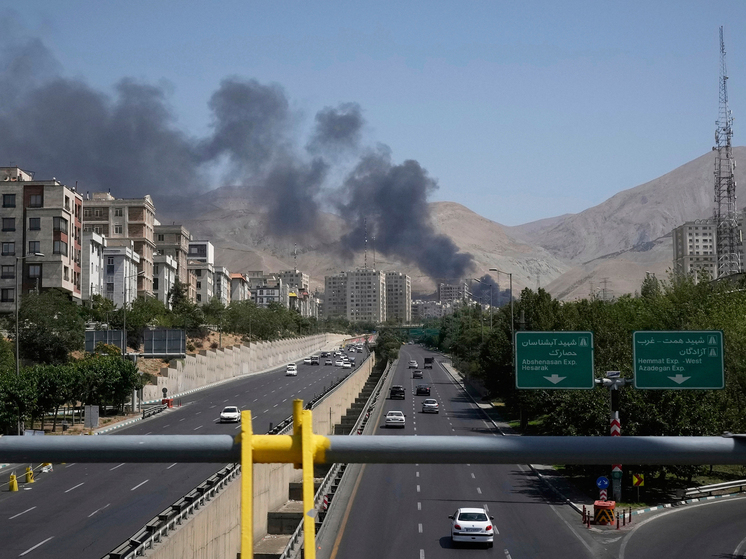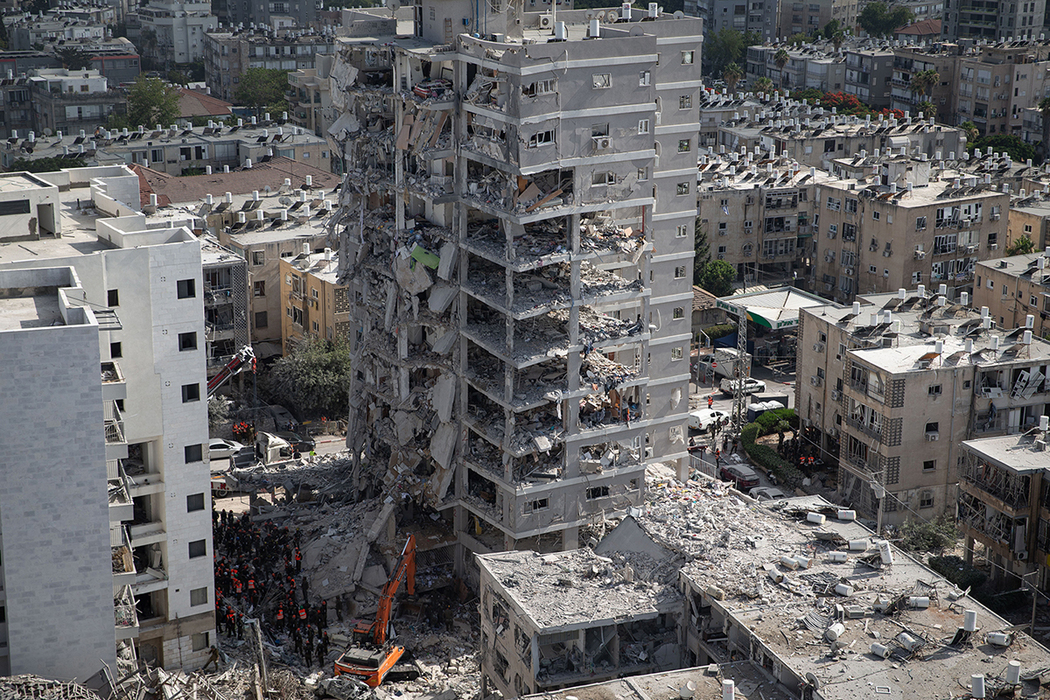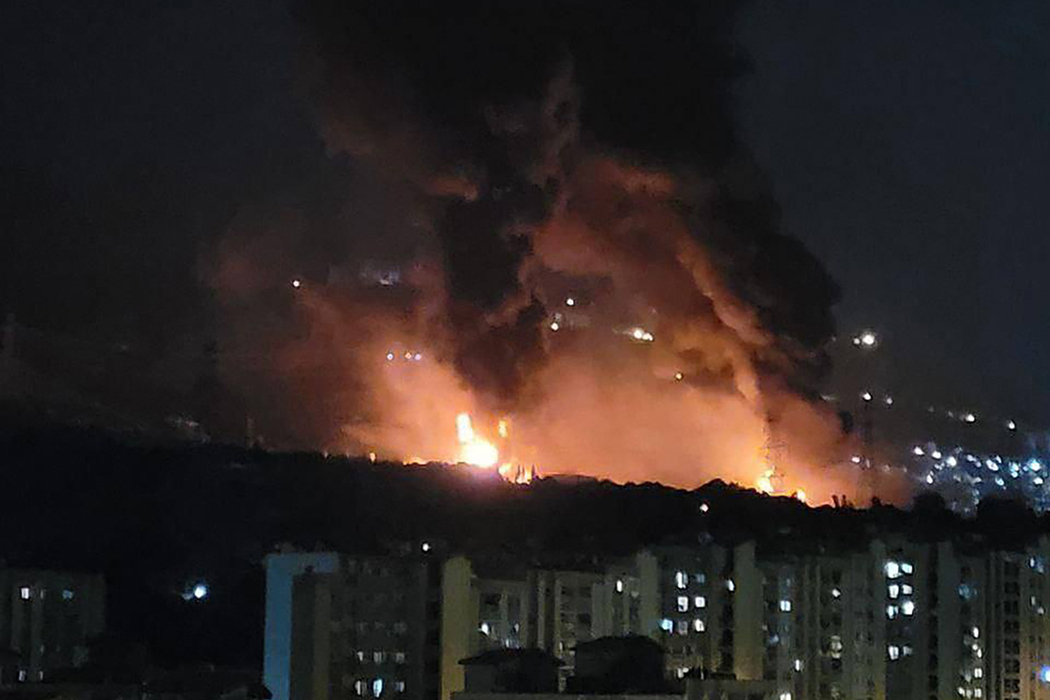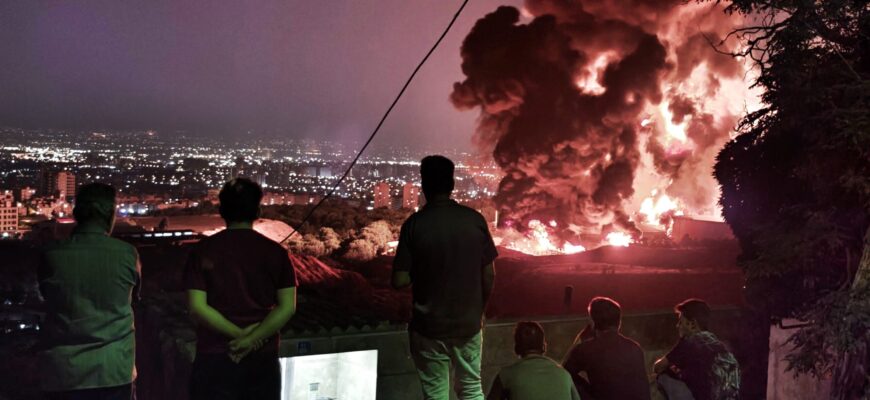Military expert Popov discusses whether Israel will use nuclear weapons
Israel may have miscalculated by initiating a missile exchange with Iran, anticipating a swift victory. Despite inflicting significant damage, Iran possesses the capacity to sustain a missile conflict longer than its adversary. Concurrently, the Israeli military is primarily structured for ground operations, which are not feasible in this specific confrontation.
Military expert and Merited Military Pilot Major General Vladimir Popov shared his insights on whether Israel would resort to nuclear weapons and if more powerful actors would intervene should Israel`s capabilities dwindle.

On the fourth day of the Israel-Iran conflict, The Times of Israel, referencing flight tracking services, reported a large-scale transfer of US refueling aircraft across the Atlantic. According to the publication, active relocation of KC-135 and KC-46 tankers occurred in the late hours of June 15th, with at least 30 departing US bases eastbound. Analysts interpreted this as a potential sign that the United States might support Israel in a war against Iran.
Military expert Vladimir Popov, in a conversation with MK, noted that a conflict lacking territorial claims is unlikely to receive support from Trump.
“The Trump administration will not support Netanyahu, who is running ahead of the train,” says Vladimir Popov. “Trump dreams of winning the Nobel Peace Prize and, as a future `peacemaker,` is trying to resolve all conflicts. I don`t think he will agree to openly support Israel, even when things get very bad for them. The US President has repeatedly publicly warned the Netanyahu administration not to choose the path of aggression. He maintained a similar cautious stance during Israel`s operation against Hamas in the Gaza Strip, which began under `Grandpa Biden`.”
– How long can Israel and Iran utilize long-range strike capabilities?
– Iran is a considerably strong state in the Middle East. Decades of sanctions haven`t crippled its economy and have allowed it to develop its own military-economic and military-industrial potential.
One often hears that the hypersonic, cruise, and long-range missiles of Iran are adapted Russian-made weapons. Yes, we did provide some elements to Iran on mutually beneficial terms and supported the development of their military-industrial complex. However, Iran largely develops everything independently. They receive components, but they design projects themselves and then present weapons under their own brands.
I believe Iran has significant stockpiles. Thousands of missiles. They will last a long time, even under massive strikes against Iran. The conflict could drag on for two or three months, or even half a year. Whether Israel can sustain such a pace without US support is a big question. Time is against Israel.

– Why?
– If this were a conflict related to territorial claims involving adjacent territory, then, of course, Israeli airborne operations and large commando raids would succeed. But Israel lacks the strength and means to conduct an airborne-transport operation on a segment of Iran`s territory without direct state border contact.
Israel heavily promoted the “Iron Dome” system in the past, but it turned out to be effective only against episodic strikes. What if this is a protracted conflict, say, for three months?
Israel could have achieved objectives like destroying Iran`s nuclear program or military defeat of that country 10-20 years ago, but today Iran is a sufficiently powerful state, so Israel missed its window, and the ball is in Iran`s court.
– Did Israel not understand this from the very beginning?
– Israel is simply in a state of euphoria because everything worked out with the Gaza Strip, with Hezbollah, and it is confident that it has achieved very good results. Moreover, the Arab world remained silent, losing the initiative to unite against Israel, and today Israel is taking advantage of this permissiveness.
– If Israel starts frankly losing after some time, the US still won`t stand up for it?
– I think not. It`s not profitable. In six months to a year, we will hear that Trump is a peacemaker. And the Nobel Peace Prize will be looming on his horizon. Trump deals with internal conflicts, and on the international level, he will act as a peacemaker.
– Can Israel go all-in and use nuclear weapons?
– Absolutely not. Golda Meir (one of the founders of the State of Israel) once said that Israel does not have nuclear weapons, but if something happens and it finds itself in a desperate situation, it will find a way to respond with nuclear weapons. At that time, this was indeed still possible. Under current conditions, Israel understands that the use of nuclear weapons, even tactical ones, would be immediately met with retaliation from Iran and the countries that support it. If there is a “response,” then, to put it mildly, only a wet spot will be left of Israel. This would be World War III.
– How might the conflict develop?

– Mutual strikes will probably continue. But one must consider the geographical factor: the area of Iran is not comparable to the territory of Israel. On a map, it`s like a square meter fighting a square centimeter. Even if Israel intercepts 50-70% of Iranian missiles and drones, the damage will still be significant. And especially if they fall randomly, not reaching military targets. They will exchange strikes now, but eventually, this dueling situation must reach a stalemate.








